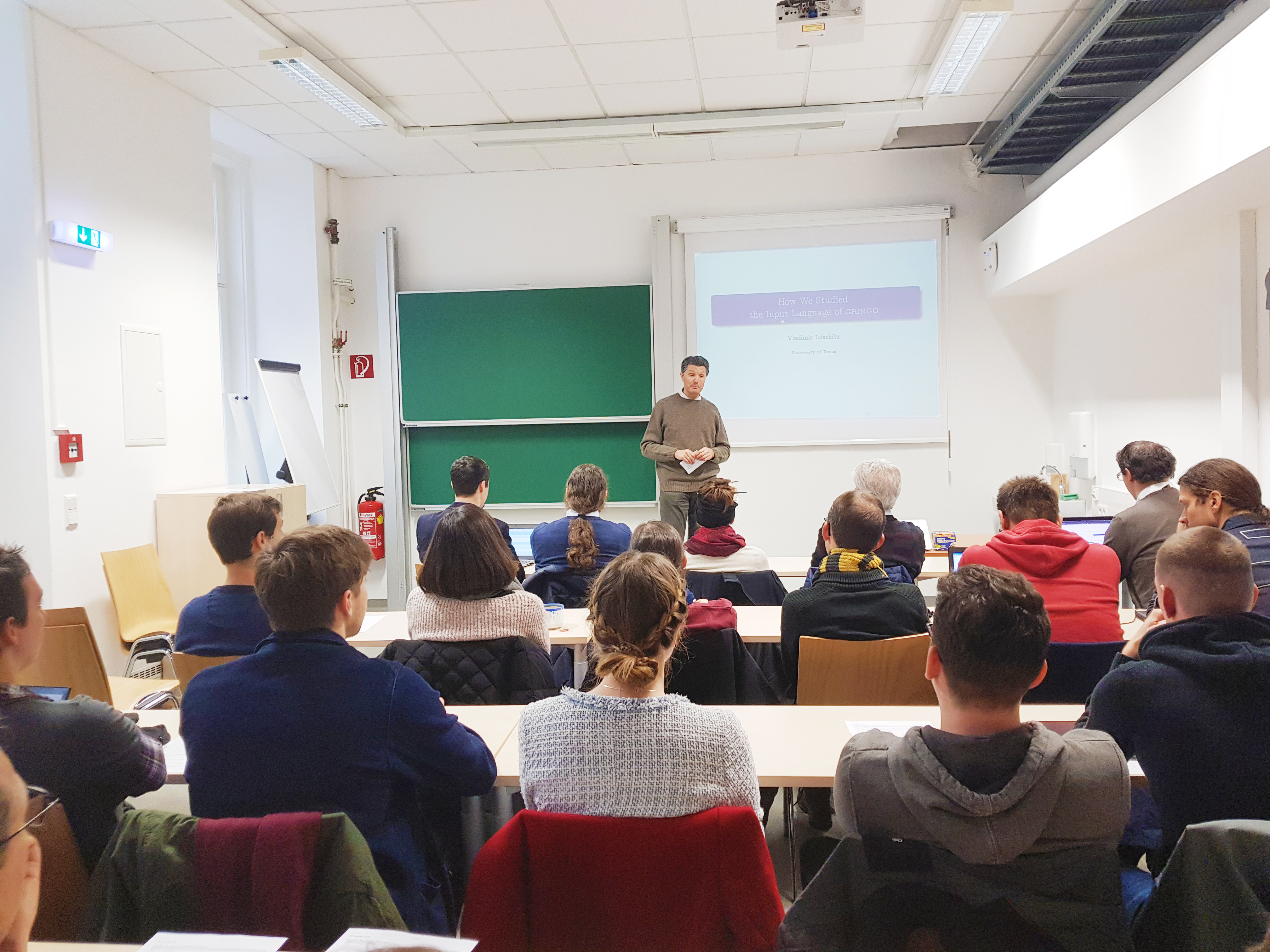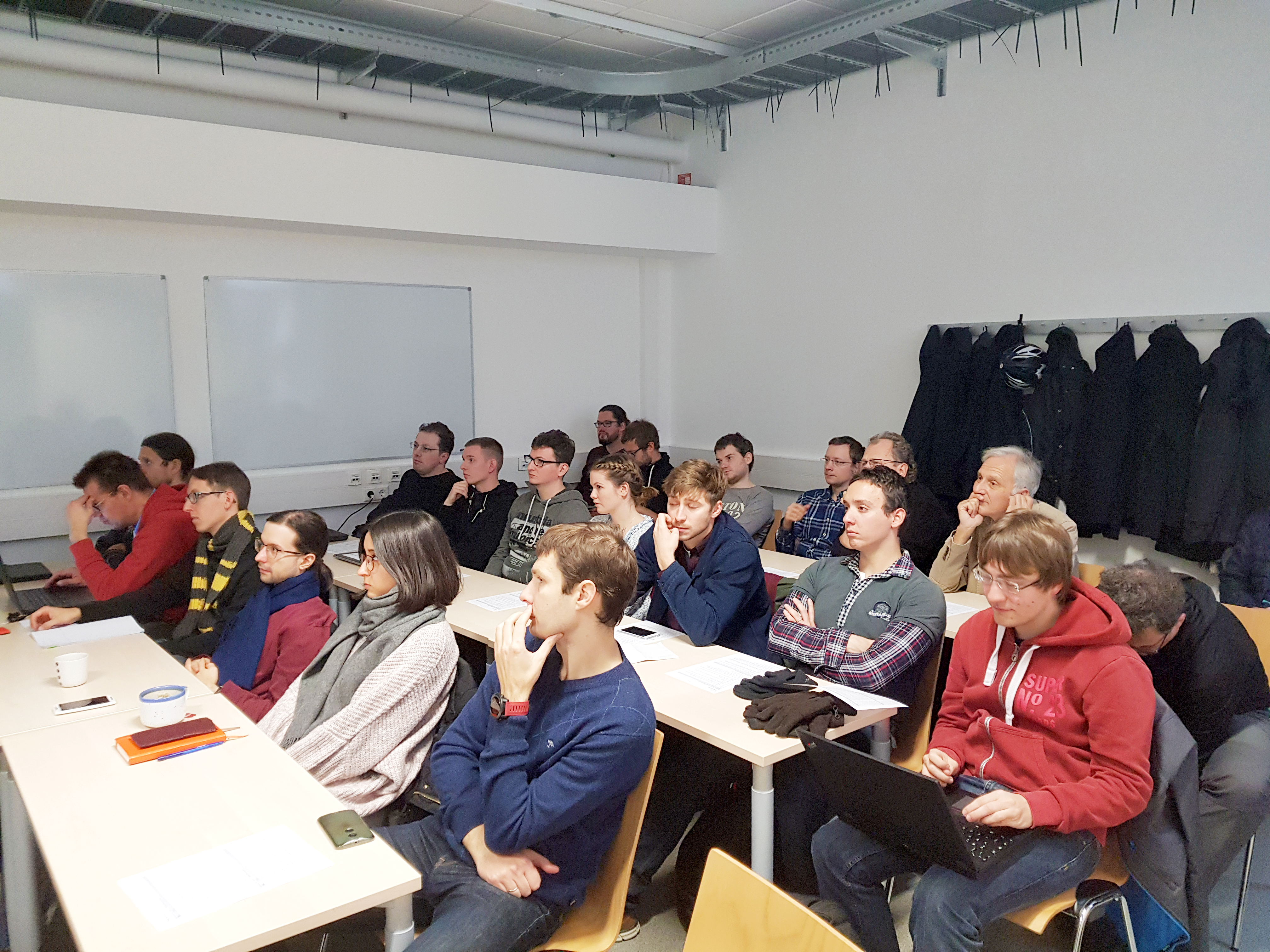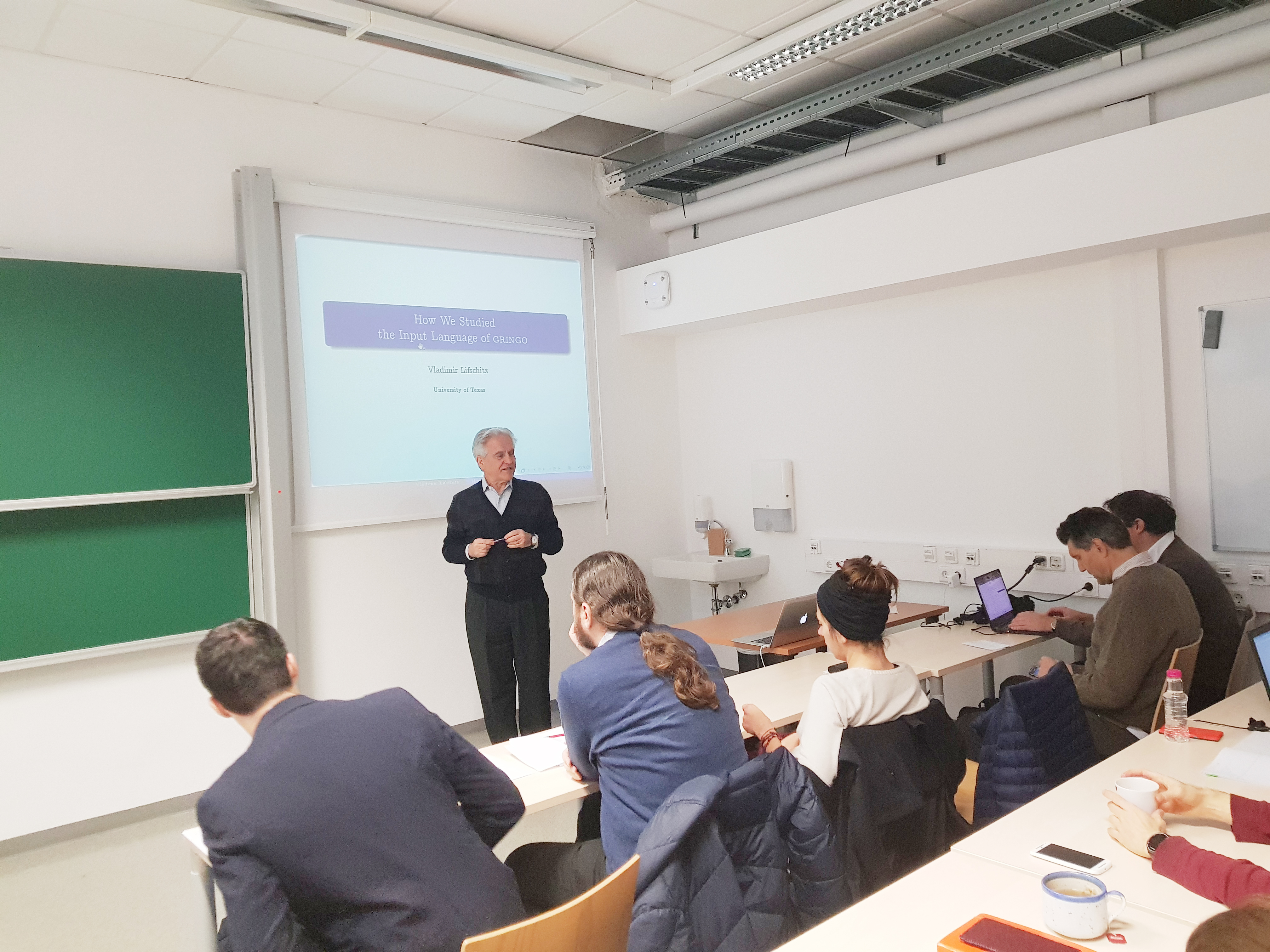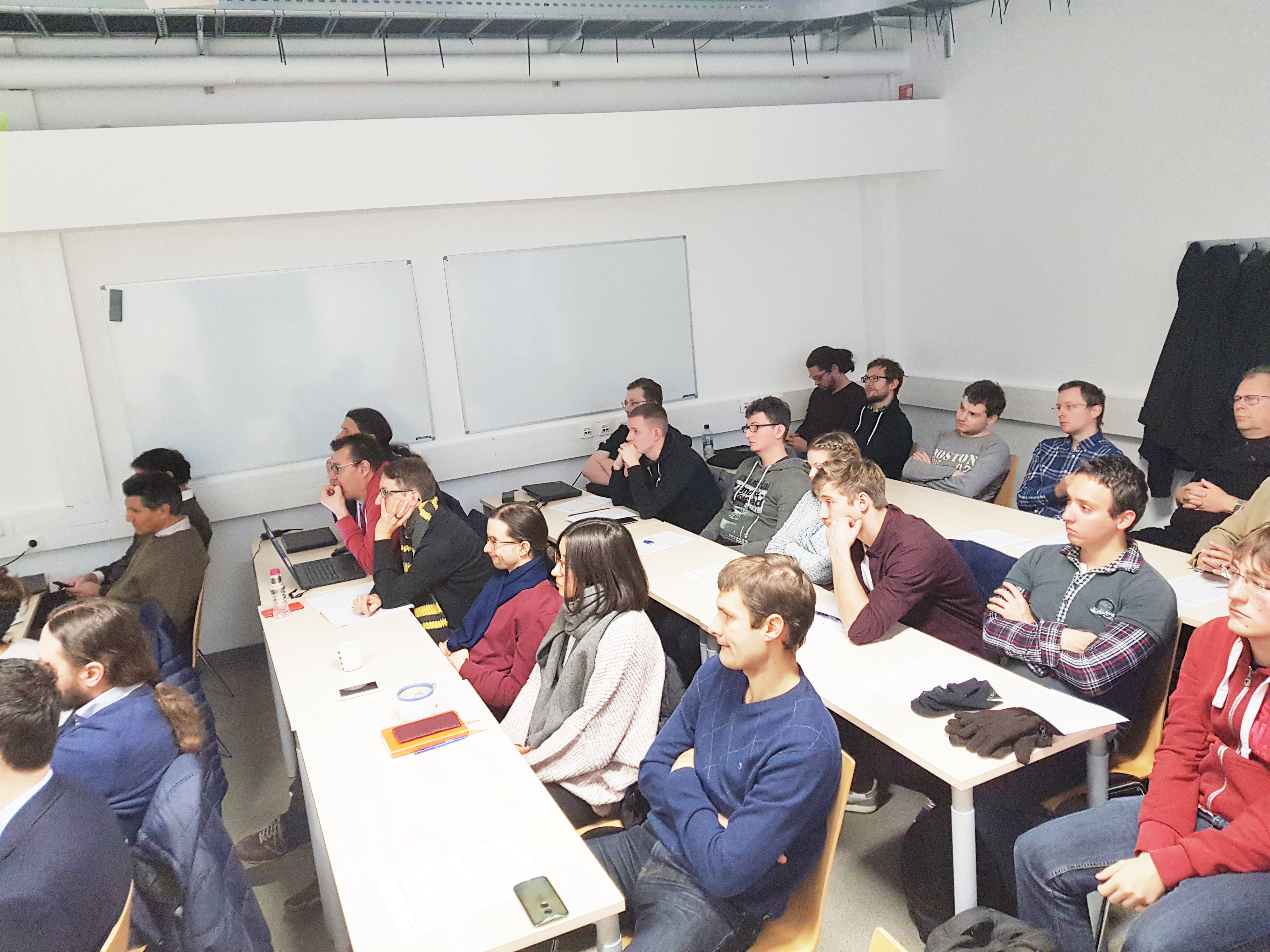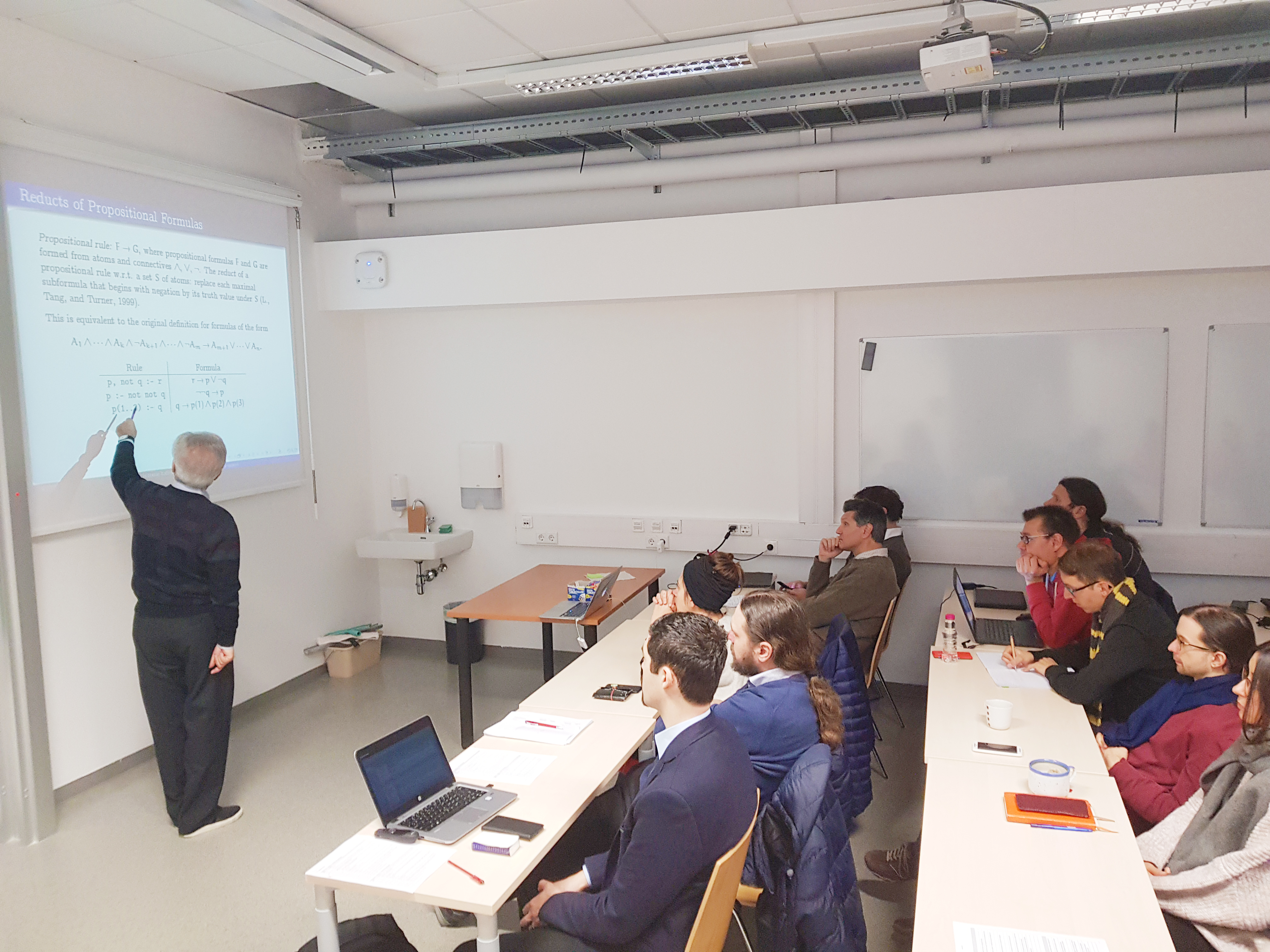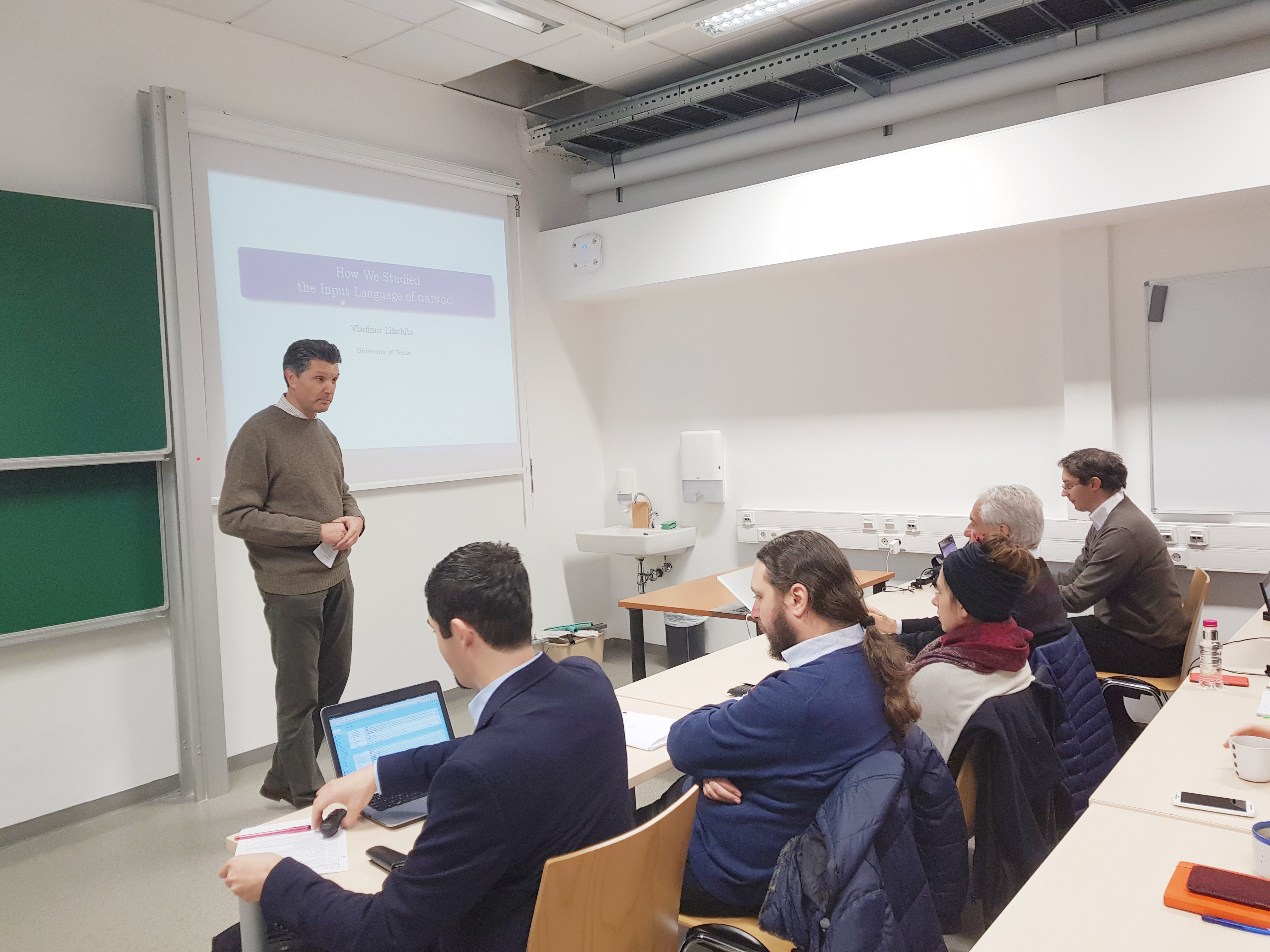Workshop on Trends and Applications of Answer Set Programming – TAASP 2018
| DATE: | Monday, November 19, 2018 – Tuesday, November 20, 2018 |
| VENUE: | Seminar Room Gödel, Favoritenstrasse 9-11, Ground Floor, (HB EG 10) |
The TAASP workshop series is jointly organized by research groups at Alpen-Adria-Universität Klagenfurt, Technische Universität Wien, and Universität Potsdam. TAASP 2018 is the second workshop of its type, which was held November 19-20, 2018 at Technische Universität Wien, Vienna, Austria.
Aims and Scope
Invited speakers
Gerhard Brewka, University of Leipzig, Germany
Strong Inconsistency
Gerd Brewka pioneered the area of nonmonotonic reasoning in Germany. He started with tutorials on nonmonotonic reasoning at the German AI spring school, KIFS, in the eighties and is internationally regarded as the German figurehead of the area since early on. Moreover, his career allowed him to experience various research environments starting from GMD (now Fraunhofer) in Saint Augustin, to ICSI at Berkeley, California, over TU Vienna, finally settling down at Leipzig University. Interview with Gerhard Brewka in KI – Künstliche Intelligenz 32(2-3), 219-221. Available here.
Programme
TAASP 2018 Proceedings
TAASP is a non-archival venue and there will be no published proceedings. However, informal proceedings will be provided and the papers will be posted informally on the workshop website. Therefore, it will be possible to submit to other conferences and journals both in parallel and subsequent to TAASP 2018.
Workshop Co-chairs
- Wolfgang Faber, Alpen-Adria-Universität Klagenfurt, Austria
- Gerhard Friedrich, Alpen-Adria-Universität Klagenfurt, Austria
- Torsten Schaub, Universität Potsdam, Germany
- Thomas Eiter, Technische Universität Wien, Austria
- Stefan Woltran, Technische Universität Wien, Austria
Organization Committee
- Michael Morak, Alpen-Adria-Universität Klagenfurt, Austria
- Philipp Wanko, Universität Potsdam, Germany
- Markus Hecher, Technische Universität Wien, Austria
- Peter Schüller, Technische Universität Wien, Austria
Support
TAASP 2018 Homepage
The website of the TAASP 2018 workshop is to be found here.
